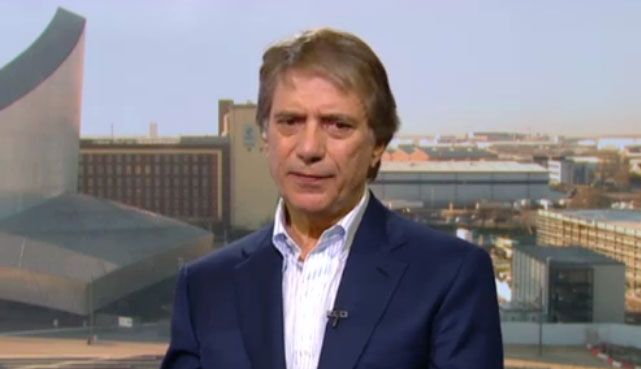
Iceland chief executive Malcolm Walker has said the horse meat scandal is a problem created by local authorities and the catering industry, but farming groups have in turn blamed retailers for their lack of scrutiny in their own supply chains.
"Supermarkets shouldn’t be blamed. British supermarkets have got a fantastic reputation for food safety" Walker told the BBC's Andrew Marr Show.
"If we're going to blame somebody, let's start with local authorities because there's a whole side of this industry which is invisible, that's the catering industry.
"Schools, hospitals, it's a massive business for cheap food and local authorities award contracts based purely on one thing: price.”
But the National Beef Association have said retailers need to look into their own supply chain before blaming others for their failures.
"The squeezing of their suppliers margins and the relentless search for profit through buying cheaper product is the reason horsemeat is in their products" the association said.
"The supermarkets spend millions on creating and protecting their brand but what is behind that brand is reflected in their own brand economy burgers. They are brands are funded by the exploitation of the consumer and the supplier.
"Supermarket own brands contained horsemeat and as such it is their name on the packet and their responsibility to be sure what is in the product. They cannot blame anyone other than their own buying policies for their failure to supply their consumers with what it says on the label."
It is a view shared by the National Pig Association who recently blamed 'supermarket greed' for the horse meat scandal.
The fear of eating contaminated beef has caused many shoppers to be wary of all meat sold in supermarkets.
Farming groups have blamed retailers who 'habitually drive down meat prices' below the cost of production causing a lapse in quality or an adulterated content of the product.
"Where on earth do they think this cheap euromeat is coming from?" demanded Richard Longthorp, chairman of the NPA.
"If you consistently buy something below the price at which it can be produced, you must know that corners have been cut in quality, or safety, or legality, or all three."
NPA general manager Dr Zoe Davies said: "even though cheap imported europork hasn't been implicated in the Horsegate scandal, the price that British pig farmers get for their safe, high-quality product plummeted by an unprecedented 3p a kilo on Friday."
"Our pig farmers are already making a loss as supermarkets import increasing quantities of cheap pork from the continent and for some this latest blow may well be the straw that breaks the camel’s back."
"But that’s not good enough for some of our largest retailers. They have to buy cheap-cheap-cheap, and that is what has landed the High Street in its current fear and confusion."
Over 90 percent of British pork is independently audited through the Red Tractor assurance scheme along its entire production process, from the feed that the pigs eat, to the way they are housed and cared for, to the way they are electronically-tracked to meat plants, and to the way the meat is processed, packed and labeled.
"Shoppers can no longer trust many supermarkets but they can trust British meat."
